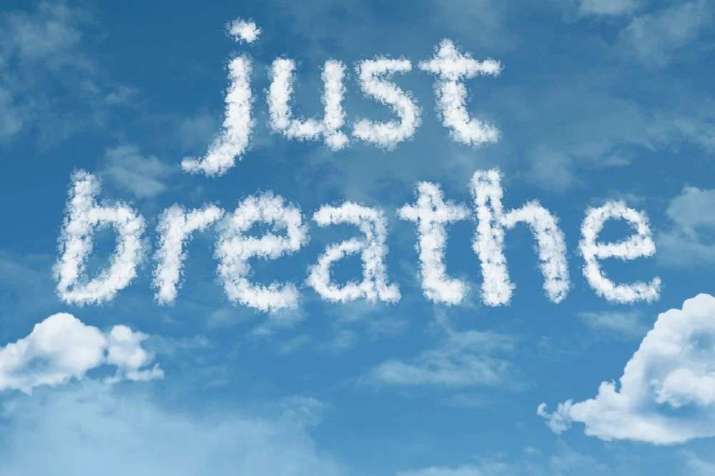
During times of heightened stress, I have a tendency to go on automatic-pilot mode: my thoughts are rapid and unreliable, my body tightens up, and I react to perceived fears instead of responding to the situation as it is. If you are anything like me, you will probably know that this is not the most helpful state of mind. This is especially true amid the current global health crisis, which calls for our utmost presence to deal with what is an unfamiliar and constantly evolving situation. How can we remain grounded when reality as we know it is changing so quickly? Reflecting on this, I am reminded of an article by Buddhistdoor Global contributor Sister Ocean, who practices in the Plum Village tradition of Thich Nhat Hanh:
With all the thousands of books written on the teachings of the Buddha and mindfulness practice, it is still a simple matter of attending to the breath, being present to reality as it is, here and now.*
Attending to the breath, Sister Ocean writes, can be enough. Because I find myself unsure about how to move forward with my practice in these unprecedented times, I take her advice and start there: watching the breath as I inhale and watching the breath as I exhale. The beauty of this practice is that the breath is always available to us. It can therefore serve as an anchor for the here and now, no matter the situation in which we find ourselves. Whether I am cooped up in my small apartment because of statewide orders to “shelter at home,” or waiting in line to enter a store (readying myself for yet more empty shelves of toilet paper!), the breath is there for me to observe.
What is more, the breath transcends any specific religion or tradition. It is the elixir of life that sustains us all and it is oblivious to our creed, ethnicity, gender identification, or to what political party we subscribe. The fact that it is universally accessible is highlighted by Thanissaro Bhikkhu in his piece Basic Breath Meditation Instructions:
It’s a good topic no matter what your religious background. As my teacher once said, the breath doesn’t belong to Buddhism or Christianity or anyone at all. It’s common property that anyone can meditate on. (Access to Insight)

Despite the accessibility and the apparent simplicity of breath meditation, the human mind is prone to creating barriers when it comes to experiencing the present moment. Sometimes I get caught up wondering whether I am practicing the correct way, as if there were a “right” and “wrong” way to breathe. While some spiritual traditions have specific guidelines about what constitutes effective breathing, the beauty of Buddhism lies in its simplicity: bringing awareness to the breath and observing it, just as it is, is enough. Thanissaro Bhikkhu writes:
Don’t force the breath, or bear down too heavily with your focus. Let the breath flow naturally, and simply keep track of how it feels. Savor it, as if it were an exquisite sensation you wanted to prolong. If your mind wanders off, simply bring it back. Don’t get discouraged. If it wanders 100 times, bring it back 100 times. Show it that you mean business, and eventually it will listen to you.
If you want, you can experiment with different kinds of breathing. If long breathing feels comfortable, stick with it. If it doesn’t, change it to whatever rhythm feels soothing to the body. You can try short breathing, fast breathing, slow breathing, deep breathing, shallow breathing—whatever feels most comfortable to you right now . . . (Access to Insight)
Notice that the important factor is to bring awareness to the breath over and over again—not to breathe a certain way, nor even to maintain continued awareness of the breath. This sentiment is echoed in Analayo’s in depth analysis of the Satipatthana Sutra: while he explains that the breath will naturally become finer as we hone our practice, he emphasizes that “the point here is to be aware of long and short breaths, not consciously to control the length of breath.” (Analayo 2003, 130)
The more I bring awareness to the breath, the more my curiosity deepens. I notice that sometimes the breath is deep and long. Other times, I am barely exhaling at all. It is as if I am on the verge of imminent danger, and holding in my breath will save my life. Recognizing this brings me back to the present moment and helps me to see things as they truly are. It enables me to validate my feelings—yes, there may be some concerns over the future that are worth planning for—and simultaneously tend to the present moment by mindfully exhaling.

Throughout this practice, it is not only my curiosity that has deepened, but also a sense of trust. Initially I assumed that this faith had grown out of the knowledge that the breath is a constant—it is always with me, and will continue to be there until the end of my existence as I have come to know it. At the same time, focusing on the breath has taught me that the breath itself is fluid and susceptible to change. In fact, if there is one thing we know for certain, it is that our breaths are numbered. So how is it that something so impermanent and delicate can act as an anchor? My gut tells me that the sense of trust stems from the very act of deeply paying attention. Yes, my days are numbered, but as Analayo explains, “Awareness of the breath can also become a stabilizing factor at the time of death, ensuring that even one’s last breath will be a mindful one.” (Analayo 2003, 126)
While we may not be able to control the impermanent nature of all things, the breath can help us to be present to—and even to revel in—the unknown as it unfolds.
* When All Else Fails, Exhale (Buddhistdoor Global)
References
Analayo. 2003. Satipatthana: The Direct Path to Realization. Cambridge: Windhorse Publications.
See more
Basic Breath Meditation Instructions (Access to Insight)













